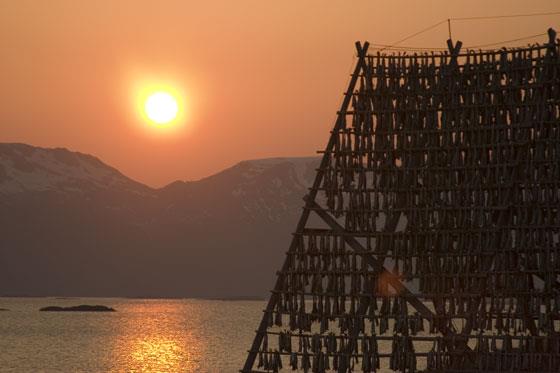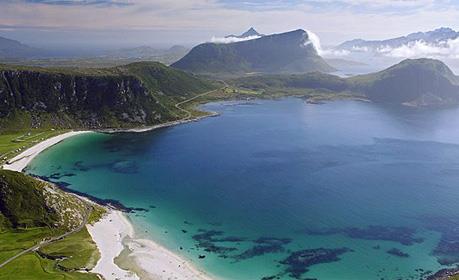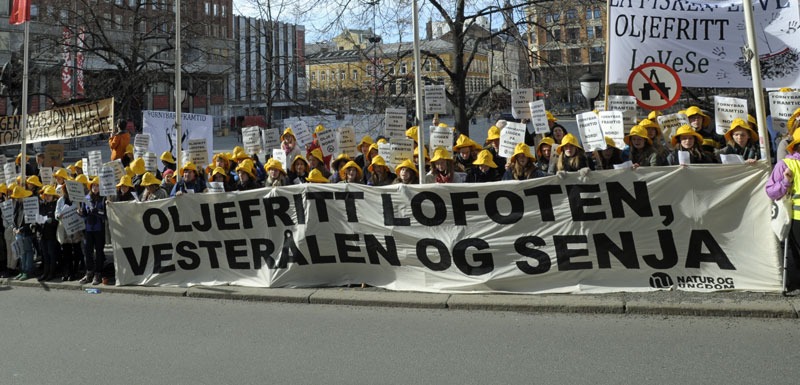The waters off Lofoten, Vesterålen and Senja are unique, and hold great value in a world where increasing amounts of natural enviroments are destroyed. The marine life in the region is vastly rich, due to unique species and sustainable fishery resources, however at the same time, very vulnerable to threats. Oil drilling could destroy the local environment and will boost carbon emissions. Young Friends of the Earth Europe demands that the Norwegian government countinue to keep the waters off Lofoten, Vesterålen and Senja oil free!
The combination of the Atlantic seawater’s rich nutrition and a narrow continental shelf make these areas especially rich in natural resources and vulnerable to pollution. The diverse selection of species creates an exeptional rich and productive natural enviroment. The Lofoten Islands are important breeding and wintering grounds for huge numbers of seabirds, 28 different species nest here every year, and many species use the area as winter habitat. The waters also hold the world’s largest cold water coral reef, the Røst-reef. The coral reefs are among Norway’s most species-rich habitats and are an important habitat for many fish species, and the area off the Lofoten Islands is the birthplace for the entire Norwegian population of killer whales.
Traditional fisheries and fishing have been the the most important foundation for employment and production in the region. The worlds largest stock of cod spawns in the exact same areas that the oil industry wants access to. The fisheries not only create jobs and financial values, they produce food to a increasingly bigger world population. Oil drilling threatens the sustainable fisheries that have given life to the region for centuries. Some areas should never be opened for oil drilling, and the areas outside the Lofoten Islands are such a place.

Climate change caused by emmisions from fossil fuels is affecting peoples lives all around the world. If the climate crisis is not met with sufficient mitigation actions, we will face a 3-6 degree warmer planet. If we don’t cut our emissions within the recommendations from the IPCC, millions of people, all over the world, stand in danger of losing their livelihoods. Norway has exported billions of dollars worth of oil and gas. It’s time to turn the page, it’s time to take the first steps towards a sustainable future. We urge Norway to be a part of the solution, not the problem, and to keep the oil in soil.
Young Friends of the Earth Europe demands an oil-free Lofoten, Vesterålen and Senja. The Norwegian government must choose between a renewable and sustainable future, and a fossil one. The choice is easy, keep the oil in the soil and Lofoten, Vesterålen and Senja oil-free!

Young Friends of the Earth Europe will be joining Young Friends of the Earth Norway in Lofoten this summer for our 2013 summer camp. Together we will be bringing 100 international and 300 Norwegain youth together to fight against oil drilling in the Lofoten Fjords.

